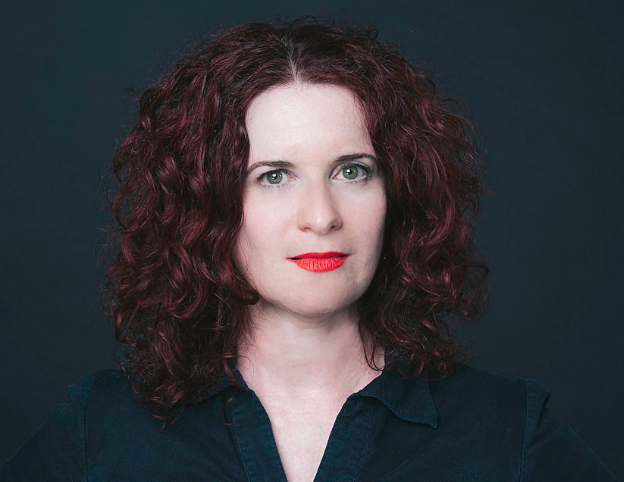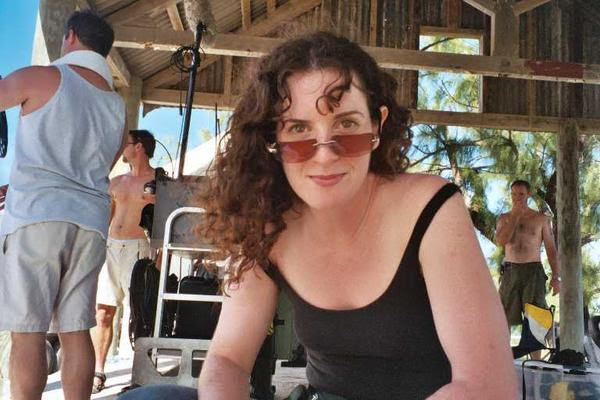FWM: Why did you launch Women in Media?
When I started Women In Media, it was the norm to hear that there were no women in the film industry, or that women didn’t have experience – a million excuses to not hire women. I knew very accomplished, talented women in every crew position. I found that women were stuck at the indie level, with little chance for advancement. As the guys moved up, they weren’t taking their female colleagues with them – they wanted to work with established guys. So, qualified women were being looked over and rarely hired on bigger projects. I saw a need to correct this, so I created the Women In Media Crew List and formed a non-profit. No one can say that there are no qualified women now. They are easy to search, vet, and hire on our website.
FWM: Since Women In Media launched in 2010, what changes have you seen as a result?
The big changes came after we went 501(c)3 in 2017 when I fully committed my time to the cause and got more people on board to help run the organization. The WiM Army is fierce and dedicated to the mission – which makes it all the more powerful. We’re seeing women behind the camera become normalized – which is to say, that there are women on set not just in vanities or production. This is trickling into the storytelling, where we’re seeing more women with agency on t.v. and in films. We’re also seeing a change in awareness. Inclusion is at the top of people’s minds, and it’s going to need to be proactively put in place until it becomes a habit. It’s becoming old fashioned to think that women aren’t capable, or don’t want to be in, say… the camera department. Film festivals are programming at parity. Women are winning big awards, and when they aren’t included (as in the Golden Globes and Academy Awards director category) the organization faces serious backlash from the viewing public.
There is a lot more work to do, as we are nowhere near parity – which to my mind is 40 – 60% on every crew, every department, every show. However, we are indeed moving in the right direction.
FWM: With COVID-19, what changes are being made for Women In Media?
We immediately took all of our events online, even before the film festivals officially recognized we needed to shelter in place. We continue to focus on networking and education, bringing great content to our community. We were planning to shoot our next round of CAMERAderie films in 2021 with a longer pre-production and training period, so that’s still on target. Clearly, we are not going into our office, but we have adapted to the shorter commutes!
FWM: You produced the award-winning short, Present: A Moment In the Future, directed by Jacqueline Kim (Star Trek: Generations, The West Wing, Advantageous). Tell us about this project.
It was my first stab at production. I had met Jacqueline in line at the LA Film Festival, and we became friends. Being an indie production designer primed me for production, as I was used to asking (and receiving) what I need to get great production value.
FWM: What are you the proudest of?
Influencing the culture and language of how we talk about women. I’ll put something out there, either in person or on social media, and then hear other folks using the same verbiage or ideas as if it were their own. I’m totally ok with that! As a production designer (and woman in general) I’m used to coming up with an idea, and the director or other folks in the meeting taking it on as if it is their own. I’m absolutely thrilled that hiring women “below the line” is in people’s consciousness because it was a struggle for so long.
FWM: You produced three short films in 2019 through Women In Media’s CAMERAderie Initiative, including Blood and Glory which screened in competition at Tribeca in 2020. Tell us about the CAMERAderie Initiative.
I had been thinking about past initiatives I had either been a participant in or had seen from other organizations. Not to look a gift horse in the mouth, but they felt like they only helped a very few people at a time for too short a period without making true, systemic change. I see the inequality in the entertainment industry as a numbers game, so I wanted to create an initiative that could touch hundreds of people and get multiple projects off the ground. Not only did we produce three projects, but many of the 20 semi-finalists have gone on to be produced because of just one of the many events we did – speed networking for a crew that had close to 100 participants. Fostering mentorship and hands-on experience all the way to festival support and giving our grand prize winner the beginnings of an 18-day shoot, feels like the effort will have longevity, and truly affect outcomes for the participants for years to come. Our hope is that it will accelerate multiple women up the ladder more quickly than if they hadn’t had the experience.
FWM: What are the benefits of joining Women in Media?
First and foremost, our members get a crew list profile that they fill out. The profile showcases all your best work and how prospective employers can contact you. Women are more fully vetted than men are before they even get an interview, so it’s imperative to have not just an IMDB, but your website, resume, reel or soundcloud (when applicable), and awards listed – just to get in the door. Our members often have their crew list profiles in the signature of their emails.
We also offer trainings, networking, and events. We have a number of partners who invite our members to their exclusive events, such as the American Society of Cinematographers and Tiffen. Getting our members in the room is powerful and empowering. Last summer, we started the CAMERAderie Initiative which produced three short films, one of which got into Tribeca. The initiative’s goal was to raise production value for the projects (post sound and color at NBC Universal), include mentorship for participants (Colin Trevorrow, Effie T. Brown, and more), and give many of them gear (we gave away 5 Blackmagic cameras, a 3-ton grip truck and lens usage for an 18 day shoot, sound gear, and more!).
FWM: Share your initiatives for 2020.
We plan to start CAMERAderie online and do our in-person training when it’s safe to do so. We can’t predict how or when that will be, but we are excited to start the writing classes and prep online.




